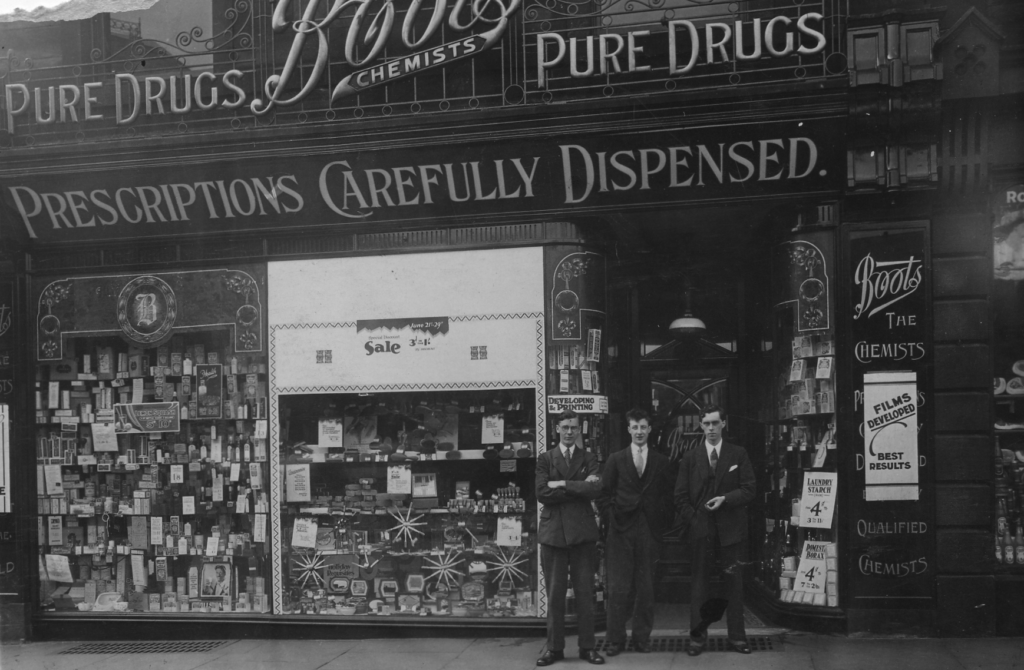The working class often avoided the expense of calling a doctor, relying instead on home remedies passed down through generations or purchasing readily available medicines from the local druggist. Enoch Sutcliffe was one of Bacup’s earliest druggists, initially operating a shop at 13 St James Street before moving to 3 St James Street. In the early 1930s, Meads Chemists took over this location, having moved from their previous shop on the site that would later become Woolworths, which had previously been Pickup’s Druggists.
In 1915, Boots the Chemist opened a shop in Bacup on what was then known as Bridge Street, now St James Square. Early chemist shelves often featured concoctions like bear’s grease for baldness, ipecacuanha for whooping cough, and mugwort for hysteria. Many of our Bacupian and Stacksteads ancestors resorted to cheaper quack medicines, often with fatal results. The Bacup Times frequently advertised “cure-all” pills, potions, and lotions.
On the opposite side of St James Street in 1868 Mr James Smith was advertising his mechanical and surgical dentistry skills, along with those for his watchmaking and jewellery skills. In an advertisement from 1869 he states: Extracting Teeth, J.S Considers it unnecessary, to say anything about this part of his profession, from the unbounded confidence placed in him since his business came to Bacup, and would like to say that all care is used for their safe, easy and certain removal. He is happy to repair decayed teeth and make them serviceable.
Mr Smith sold his gold teeth for 12s, each. At this time there was no authority governing dentistry or those calling themselves such with no overseeing authority or register it is hardly surprising that death sometimes occurred following a visit to the dentist. As shown in a newspaper report of 1867, which detailed the death of Mrs. Richard Ashworth of New Line. Who had suffered from toothache and had a tooth extracted by the local chemist. Tragically, she contracted blood poisoning and passed away the following day.
In 1869, Mr. Charles Nuttall practised dentistry at 18 Market Street. His prices included a single 18-carat gold tooth for 11 shillings and a full set starting from £10. That same year, Mr. Nuttall advertised his ability to perform dentistry without pain or discomfort, thanks to his considerable investment in American apparatus for the manufacture of nitrous oxide gas, which we now know as laughing gas.

